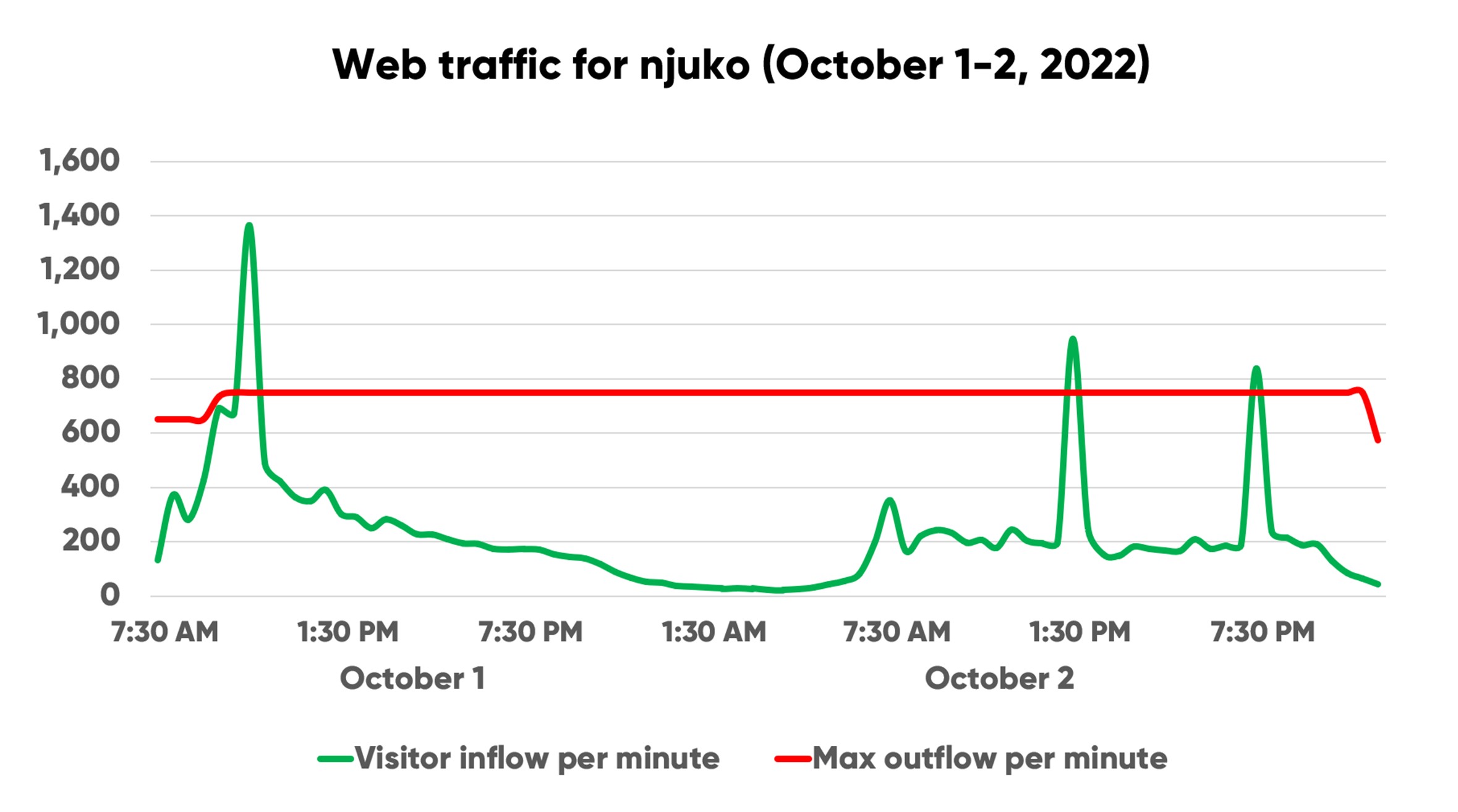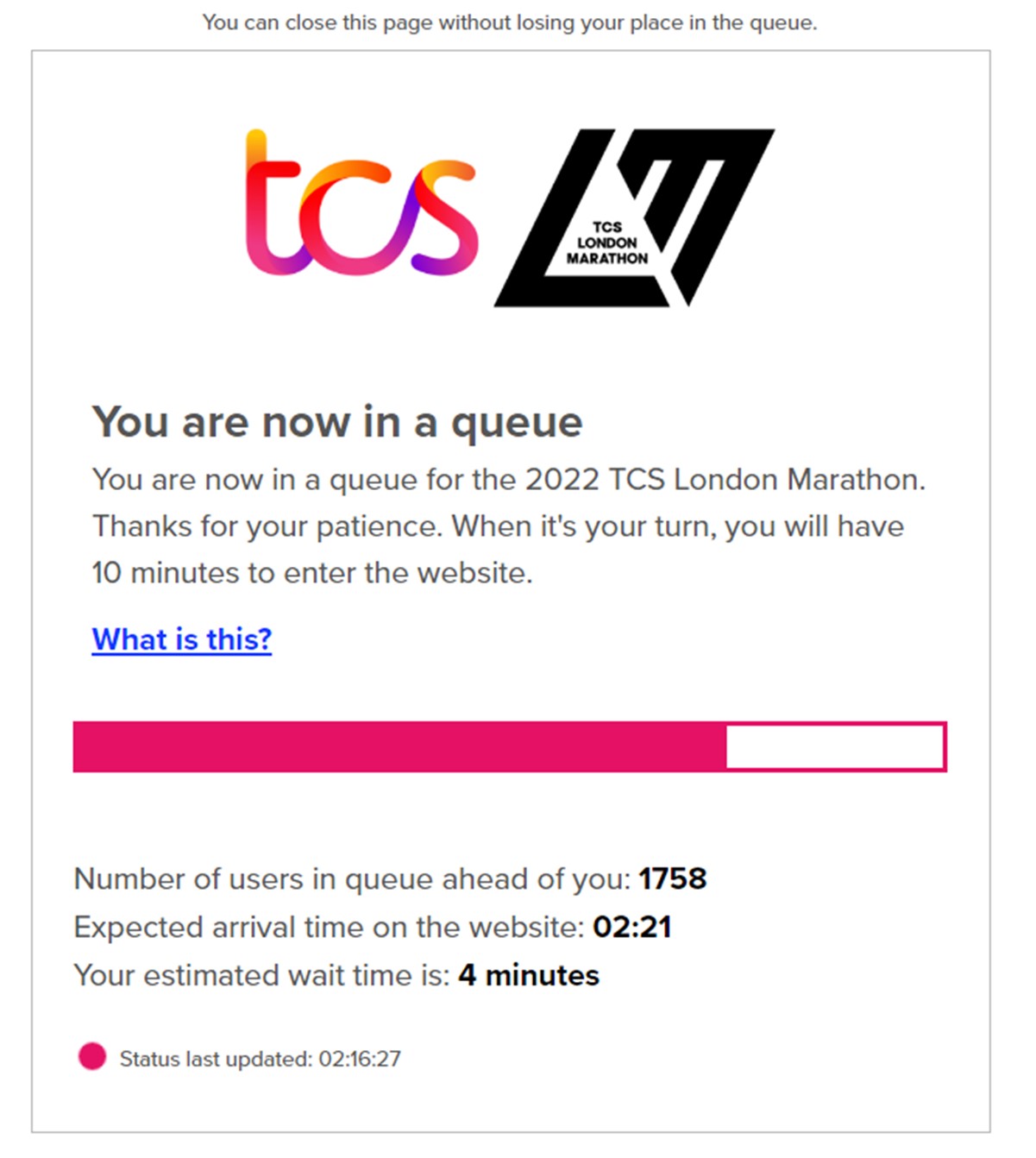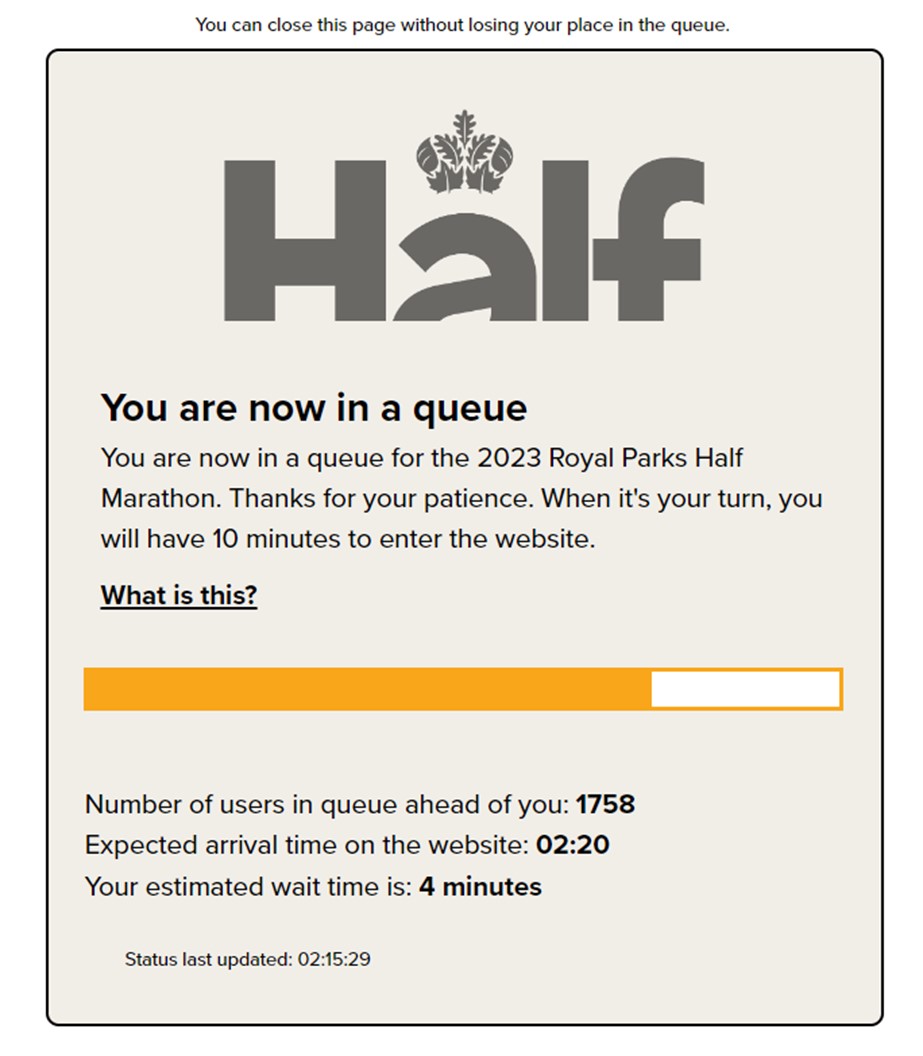How njuko runs smooth & reliable registrations for millions of amateur athletes

Sports registration platform njuko sets itself apart from the competition with software tailored to the unique challenges of its industry. With a completely configurable interface and an app store-like approach to features, njuko works with some of the world’s biggest endurance events and public sporting competitions. Discover how njuko uses Queue-it to run these large-scale registrations with confidence.
“Established in the future.” That’s the tagline of French sports registration software platform njuko.
Composed of an international team of sports and technology enthusiasts, njuko’s forward-looking approach and steadfast product focus has seen them grow to become one of the top players in their niche.
With over 3.5 million registrations per year and a new event opening every 2 hours, njuko runs registrations for some of Europe’s biggest public sporting events—including the Frankfurt Marathon, the Dusseldorf Marathon, and The World Athletics Championships.
Sports registration software is not like ordinary ticketing, explains Matt Trevett, njuko’s Head of U.K. “When it comes to endurance sports events, there’s a lot of unique features and requirements that are very niche. We have bib numbers, people registering in teams, relay races, triathlons where one person swims and another one runs—a lot of factors that are very specific to the event.”
While the sports registration space is unique, the traffic these major endurance events attract is anything but unique. As with all ticketing platforms, as njuko grew and took on bigger events, they had to deal with bigger demand. We sat down with Trevett to hear how njuko runs some of the world’s biggest sports registrations with confidence.

What sets njuko apart is the clarity of their goals and product vision. “We’re not trying to expand into music festivals and concerts,” Trevett explains. “We’re focused on delivering the best solution for the challenges within our niche.”
From njuko’s earliest days, Trevett says, one of these goals was to create a system that wouldn’t systems crash, for any reason.
“It always amazed us that so many events in our industry still crash, because even the biggest endurance sports events don’t really compare to something like a Taylor Swift concert,” he says. “It drove us crazy, because our industry should really be up to date with the tech of the broader ticketing industry.
“It’s always been very important for us to stay online. We know that if you crash during a registration, the client can terminate the contract the next day. And it’s a small industry, so you can become known as a platform that crashes under pressure and you can’t really claw back from that.”
But as njuko took on bigger and more diverse clients, upholding this goal of never going offline became more challenging.
“Every client has a unique situation and level of demand,” Trevett says. “Some events send out emails to 100,000 people with no idea how many of them will click the link. Others, like the London Marathon, get linked to from the BBC national news site, which is even more unpredictable. Then if there are influencers involved, you can’t tell when they’ll post or how much traffic they’ll drive. Some events have a very limited capacity, which causes a big rush when they open. Others allow for unlimited ballot entries.”
To deal with these diverse scenarios, the njuko team has a “series of questions we ask that give us an idea of how big demand will be, so we can scale up in preparation,” Trevett says. “But really, no event organizer knows what their registrations per minute will be. No one can accurately predict how many people will register on the day.”
When njuko first got the call to work with one of the world’s biggest marathons, they knew that traffic predictions and scaling would only get them so far. They planned to scale their systems to handle more traffic than ever before, but needed an extra layer of protection, which is why they got in touch with Queue-it.
“We first used Queue-it when we signed with the London Marathon a few years back,” Trevett says. “It’s one of the world’s biggest endurance events. There’s no limit to entries and the launch is highly publicized, so we couldn’t predict the traffic. We needed something to give us more control and safety, which is why we brought on Queue-it.”
With Queue-it place, hundreds of thousands of runners successfully registered for the London Marathon ballot, and njuko upheld their goal of staying online through their biggest registration yet.
“Thanks to Queue-it, we didn’t crash during The London Marathon,” Trevett says. “We can still say that njuko has never crashed a major launch, which is something we’re really proud of.”
When asked why he thinks other platforms crash during big registration events like these, Trevett blames some over-reliance on autoscaling.
“A lot of registration platforms rely on autoscaling to handle uncertain traffic in high-demand situations. And we’ve seen a lot of them crash because of that."
Alongside Queue-it, Trevett explains, njuko’s approach has always been to pre-scale their systems to handle demand. “We always pre-scale to a place where we know we’ll be able to handle the expected traffic,” he says. “Then in case of anything unexpected, we have Queue-it on top that as a safety net. This gives us full confidence we won’t go down, but it also lets us give a quote guarantee to clients, because we know the system isn’t going to autoscale like crazy and cost a huge amount.”
“The combination of Queue-it and pre-scaling is really helpful, with the pre-scaling letting us give a quote guarantee and be confident we can get people signed up quickly; and Queue-it just giving us of peace of mind, knowing we’ll stay online even if traffic is much higher than anticipated.”
MATT TREVETT, HEAD OF U.K.


Traffic to njuko's platform spiked beyond their high threshold several times during this major registration—peaking at almost 1,400 visitors per minute.
njuko focuses on strong partnerships with companies like Queue-it, Trevett says, so they can maintain focus on what’s most important to them.
“We want to be the best at what we do, and to do that you need to partner with companies who are the best at what they do. Why build a running app when you can work with Strava? Why build a queue when you can work with Queue-it?”
This mentality was at the heart of njuko’s platform refresh in 2019. “The one-size-fits-all approach never really works in this market,” Trevett says. “So, we redeveloped our platform and engaged in a range of partnerships that empower our clients to build their own version of the product.”
The revamped njuko, Trevett explains, “is kind of like an app store for sports registrations, where you can go on the platform and choose all the features you want. For example, if a client wants or needs a queue, they go into their event and select Queue-it from the menu. They add a few simple details, and we’ll automatically inject the code into their site. Then they can just toggle Queue-it off and on.”
Behind-the-scenes, the njuko team ensures all these integrations are successfully managed and tailored to the needs of the event organizers. “We ensure all Queue-it’s actions and triggers are set up right for the event. Then for bigger events, we’ll keep an eye on the Queue-it dashboards and sometimes lower the queue threshold on the fly, if the system is running hot. That level of control Queue-it gives us is really powerful.”


njuko’s strong product focus and forward-looking vision has seen them grow to one of the biggest players in the sports registration space. Where many brands come to Queue-it after a devastating crash, the brand that’s “established in the future” had the foresight to implement a virtual waiting room before traffic got beyond what they could handle.
As njuko continues its expansion and takes on increasingly large sporting events, the fact that their platform has never cracked under pressure remains a point of pride, Trevett says, enabling them to grow with confidence.
“The biggest benefit of Queue-it is the assurance it gives us that we’ll stay online for our clients. As we take on bigger clients, that extra level of protection becomes critical. It’s so valuable as a business to be able to say to a client, ‘We can assure you we won’t crash’. Queue-it gives us the confidence to say that.”